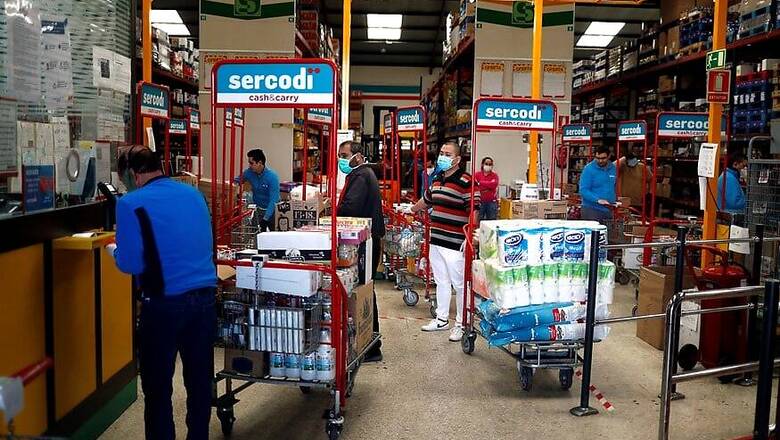
views
Workers in Spain's construction and manufacturing sectors cautiously returned to work Monday as the daily death toll resumed its downward trend and new infections fell to the lowest level in three weeks.
Spain is one of the worst-hit countries in the world, and saw the daily death rate fall for three consecutive days last week, only to rise again on Sunday.
But on Monday it fell again, with 517 deaths in 24 hours, putting the overall death toll at 17,489 with the number of cases now standing at 169,496.
Confirmed cases also rose by 3,477 -- the lowest daily figure since March 20 -- as Spain began reopening parts of its economy after a two-week "economic hibernation" period.
Although health chiefs say the outbreak in Spain has peaked, they have urged the population to keep observing a strict national lockdown imposed on March 14 to slow the spread of the virus.
The restrictions were further tightened on March 30 when all non-essential activities were frozen for two weeks -- largely targeting the construction and manufacturing sectors.
But those restrictions were lifted on Monday, and train stations were staffed with police and Red Cross volunteers handing out face masks for those returning to work.
At Madrid's Atocha station, commuters took the masks from officers at arm's length to avoid getting too close.
"It's amazing that the government is doing this because either you can't find them in shops or they're very expensive," said nurse Brenda Palacios, who took two of them.
"I have one at work but I can't take it home with me so I leave it there."
Masks have been hard to come by in recent weeks and some commuters said the handouts put them at ease during their trips to work.
"It's wonderful because it's so necessary and it helps those of us who have to use public transport," said office worker Jose Antonio Cruces.
"Most people (on public transport) don't have masks or gloves."
Although public transport in much of Spain has been largely empty in recent weeks, the few commuters using it often do not have protective gear.
"I work in health care and we have them but very few of them, so I didn't have one to travel to and from work," said Maria Martinez.
For commuters, having a mask was essential as "we don't know who's infected or if we ourselves are asymptomatic," she said.




















Comments
0 comment